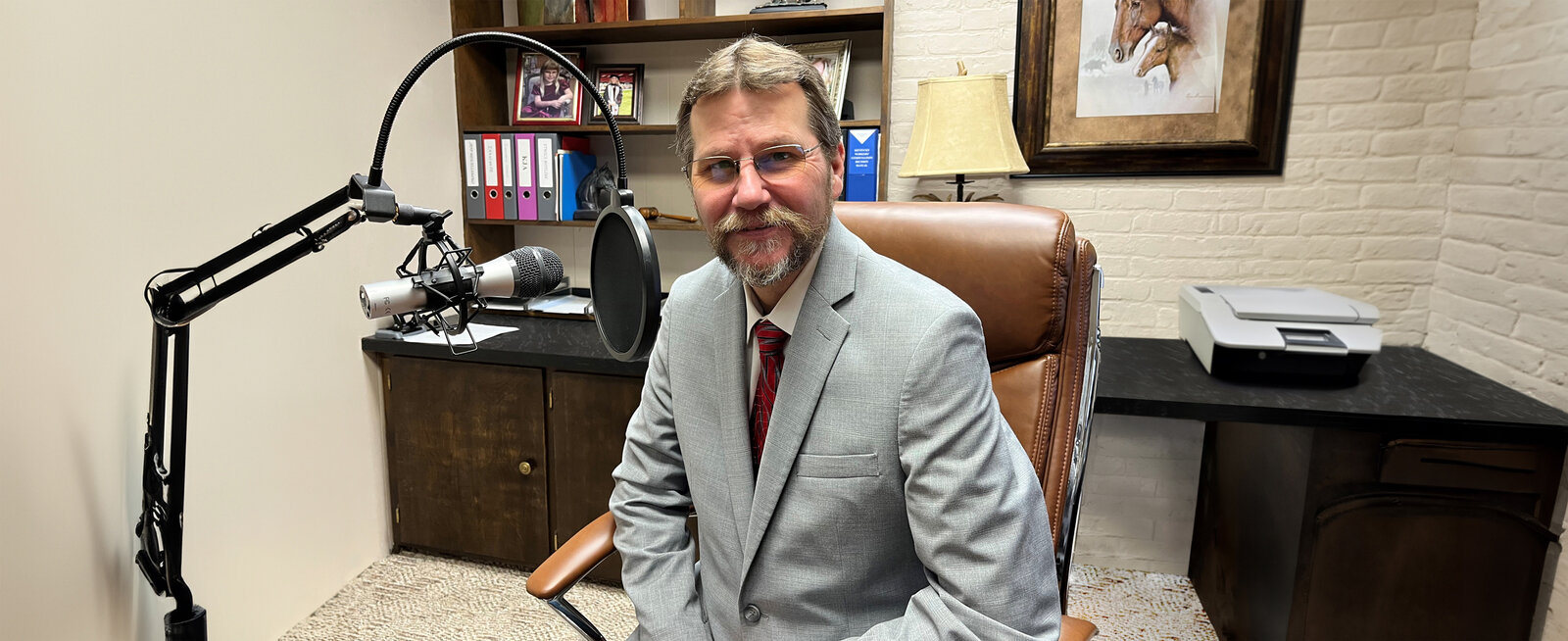Episode 85: Calloway County workers’ compensation attorney Jeff Roberts discusses catastrophic work injuries, based on his over 32 years of experience. Jeff represents injured workers across the state. He’ll also explain a potential benefit available to the spouse, when someone is seriously injured in the workplace.
Medical Benefits Available through the Workers’ Comp System
In Episode 2, Jeff provided a general overview of the types of benefits available through the Kentucky workers’ compensation system. These include medical benefits, temporary total disability benefits, potential vocational rehabilitation, permanent disability benefits. There are also death and survivorship benefits if the workplace injury results in a fatality.
In 2018, the legislature changed the medical benefits. Under the current law, medical benefits could terminate after 15 years. However, there is still a possibility that the injured worker could still receive medical benefits for the rest of his/her life. There will be a process to undergo an evaluation to have the benefits extended beyond the initial 15-year limit. The Department of Workers’ Claims is expected to notify the injured worker that the 15-year limit is about to occur. The worker and his/her attorney would submit documentation to a judge explaining why the benefits should be continued. The insurance company paying the benefits will have an opportunity to respond.
With catastrophic work injuries, there a possibility that lifetime medical benefits may be awarded from the start. This could involve a traumatic brain injury, a spinal cord injury, and injury resulting in an amputation or some other type of serious injury.
Equipment such as wheelchairs, prosthetics, lift-chairs and other items will wear out over time. It’s important that the workers’ comp settlement have provisions to replace them. This could also apply to vehicles that have been specially adapted to accommodate the injured worker.
Alterations to a catastrophically injured person’s home would also be covered under the medical benefits. This could include ramps, widening of doorframes, modifications to the bathroom, etc. Jeff had a client who was able to get an elevator installed in a 2-story home to make it possible for the injured person to move throughout the home.

Ensuring the Department of Workers’ Claims Is Updated when You Move
If the catastrophically injured person moves, after the claim is settled, it’s important that he/she notify the Kentucky Department of Workers’ Claims to make sure their new address is entered into the record. They’ll need to contact you when the 15-year limit is getting close. You don’t want to pass that deadline because the Department was sending notifications to an old address.
It is the obligation of the client to notify the Kentucky Department of Workers’ Claims. It’s not the attorney’s responsibility.
Income Benefits through Workers’ Comp
Jeff explains that catastrophic work injuries often result in total disability. Currently, Kentucky’s permanent, total disability benefits continues for a minimum of 4 years or until the worker turns 70 years of age, whichever is longer. For instance, if the worker was totally disabled at age 67, he/she would continue to receive benefits until the age of 71.
There’s a risk that the settlement agreement is not properly worded. Basically, it needs to be coordinated with social security disability settlement. This could negatively impact the amount of social security disability benefits the injured worker receives. This is sometimes referred to as a social security wrap-around. Jeff has also handled social security disability for over 30 years. Check out Episode 84 for some additional details.
Temporary Total Disability benefits (TTD) is paid during the time you are off of work, under doctor’s orders, as a result of your injury. In Episode 77, Jeff explained how TTD benefits are calculated. Normally, these benefits would continue until the worker returns to work or he/she reaches maximum medical improvement (MMI). Once either of these occur, the TTD benefit payments will end. TTD is there to pay 66 and 2/3rds of their average weekly wage. This amount is subject to a cap under Kentucky law. Again, refer to Episode 77 for a detailed explanation. Interestingly, this calculation is frequently incorrect and the worker’s attorney may need to argue for more inclusive calculation, resulting in a bigger check for the injured worker.
By working with an attorney for your workers’ comp claim and your social security disability claim, you may be able to ensure the systems work together to ensure there is money still coming in, until the permanent disability from workers’ comp begins. You don’t want to wait until your TTD benefits end before filing a claim for social security disability benefits.
Benefit for the Spouse of a Catastrophically Injured Worker
When a catastrophic work injury occurs, the hope is that the work will eventually leave the hospital and rehabilitation facility to return home. However, depending upon the extent of the injuries, on-going home healthcare is often required.
There is a potential that the spouse, or family member, may receive compensation for providing medical care for the catastrophically injured worker. It’s possible the caregiver may need to administer medications, bathe the injured person, administer infusion treatments, etc. The insurance company would normally pay a home health aide or nurse to provide these services. If the spouse/family member is properly trained and is willing to provide the services, the insurance company may agree to pay the spouse or family member.
This arrangement should be carefully considered. It’s not a responsibility to be taken lightly, because if it could result in additional harm to the injured individual.
In Episode 68, Jeff also discussed how workers’ compensation reimburses an individual for travel for medical treatment. The title of the episode references a different issue, but Jeff included important information about the reimbursement for mileage, later in the discussion. There’s also a link to the form you’ll need to use. Importantly, you must submit Form 114 within 60 days of incurring the expense.
Having a long-term plan makes it much easier to deal with the changes as they occur. An experienced workers’ compensation attorney can provide the perspective you’ll need to help you to prepare for the changes the family will experience, as a result of catastrophic work injuries.
What Do Other Clients Think About Jeff?
We always encourage listeners to read the Google Reviews Jeff Roberts has received from many of his clients. A 5-Star rating and the comments are earned recognition and demonstrate Jeff’s commitment to his clients. As a solo attorney, he has more Google Reviews than some firms with multiple attorneys. Jeff shares the credit with his staff at the Roberts Law Office. Successfully representing injured clients is a team effort. It’s why Jeff likes to say his firm offers small town service with big city results.
Jeff Roberts Represents Injured Clients Throughout Kentucky
With offices located in Calloway County and now Christian County, Jeff has a history of representing personal injury clients, workers’ compensation clients and social security disability clients across the state. He’s represented clients from Paducah, Bowling Green, Louisville, Covington, Whitesville and many other Kentucky locations. He’s not just a Western Kentucky injury attorney.
We hope you found this episode insightful and helpful. Thank you for listening!
Is It Time to Speak with an Attorney about Your Workers’ Compensation Claim?
The office phone number is (270) 753-0053 or toll free at 800-844-5108. For more information, visit www.JeffRobertsLaw.com. This podcast is meant to provide information and is not legal advice. Jeff’s principal office is located at 509 Main Street, Murray, Kentucky. Co-host Jim Ray is a non-attorney spokesperson. This is an advertisement.





